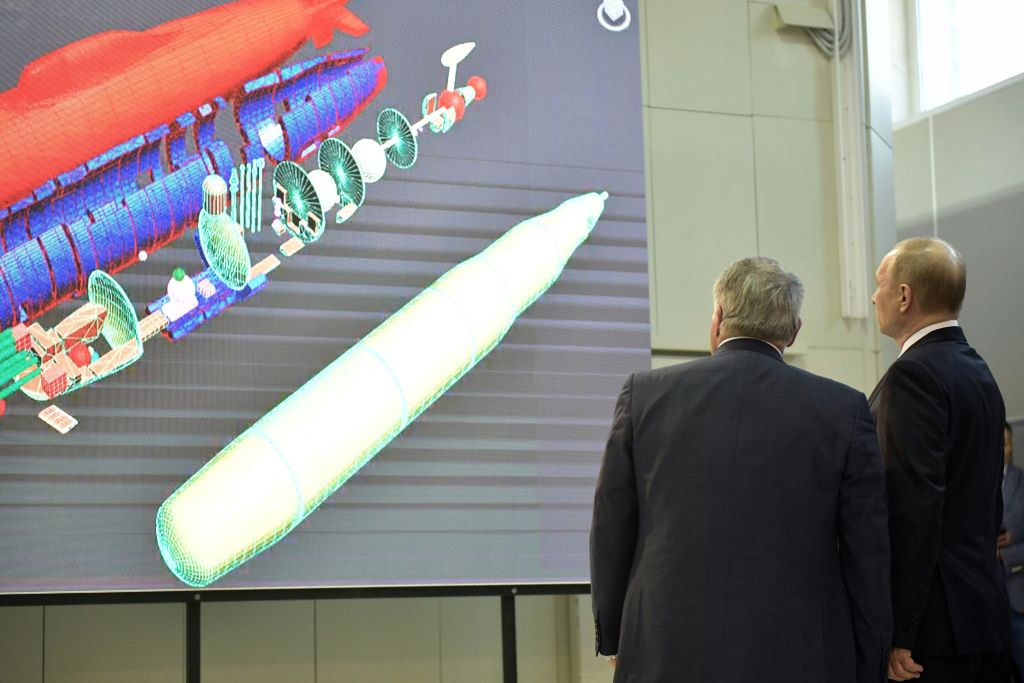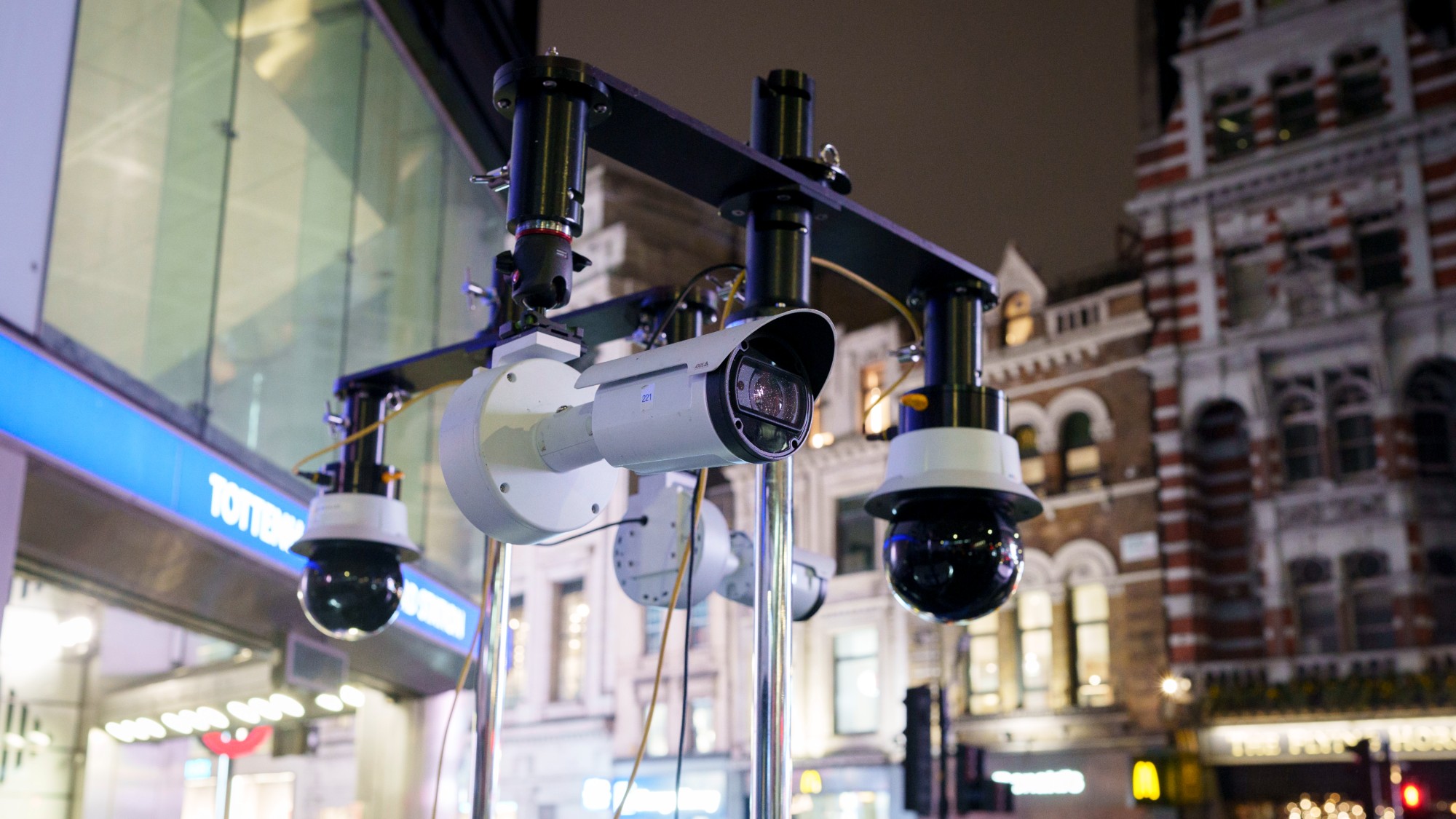A mysterious Russian satellite is showing 'very abnormal behavior'


In Geneva on Tuesday, a U.S. State Department official warned a United Nations disarmament conference that Russia has launched a purported "space apparatus inspector" whose "very abnormal behavior" is "of great concern" to the U.S. government. "We don’t know for certain what it is and there is no way to verify it," said Yleem Poblete, assistant secretary for arms control, verification, and compliance. "But Russian intentions with respect to this satellite are unclear and are obviously a very troubling development," especially given America's "concerns over many years that the Russian Federation is actively pursuing the development and deployment of anti-satellite weapons."
Alexander Deyneko, a senior Russian diplomat, told Reuters that Poblete's comments were "the same unfounded, slanderous accusations based on suspicions, on suppositions, and so on," and suggested the U.S. join Russia and China in developing a treaty to prevent an arms race in space. ("The United States has clearly articulated the many flaws of this draft treaty," Poblete said in her speech, and Russia's "hollow and hypocritical efforts are not the answer" given its routine violations of easier-to-verify arms treaties.)
Space weapons like "lasers or microwave frequencies that could just stop [a satellite] working for a time, either disable it permanently without destroying it or disrupt it via jamming," are a real concern, Royal United Services Institute analyst Alexandra Stickings tells BBC News. And they would be hard to differentiate from other satellites. But the Trump administration may not be in the best position to complain, after President Trump ordered a new military Space Force branch, she added. "The narrative coming from the U.S. is, 'Space was really peaceful, now look at what the Russians and Chinese are doing' — ignoring the fact that the U.S. has developed its own capabilities."
The Week
Escape your echo chamber. Get the facts behind the news, plus analysis from multiple perspectives.

Sign up for The Week's Free Newsletters
From our morning news briefing to a weekly Good News Newsletter, get the best of The Week delivered directly to your inbox.
From our morning news briefing to a weekly Good News Newsletter, get the best of The Week delivered directly to your inbox.
A free daily email with the biggest news stories of the day – and the best features from TheWeek.com
Peter has worked as a news and culture writer and editor at The Week since the site's launch in 2008. He covers politics, world affairs, religion and cultural currents. His journalism career began as a copy editor at a financial newswire and has included editorial positions at The New York Times Magazine, Facts on File, and Oregon State University.
-
 Heavenly spectacle in the wilds of Canada
Heavenly spectacle in the wilds of CanadaThe Week Recommends ‘Mind-bending’ outpost for spotting animals – and the northern lights
-
 Facial recognition: a revolution in policing
Facial recognition: a revolution in policingTalking Point All 43 police forces in England and Wales are set to be granted access, with those against calling for increasing safeguards on the technology
-
 Codeword: December 14, 2025
Codeword: December 14, 2025The daily codeword puzzle from The Week
-
 Blue Origin launches Mars probes in NASA debut
Blue Origin launches Mars probes in NASA debutSpeed Read The New Glenn rocket is carrying small twin spacecraft toward Mars as part of NASA’s Escapade mission
-
 Dinosaurs were thriving before asteroid, study finds
Dinosaurs were thriving before asteroid, study findsSpeed Read The dinosaurs would not have gone extinct if not for the asteroid
-
 SpaceX breaks Starship losing streak in 10th test
SpaceX breaks Starship losing streak in 10th testspeed read The Starship rocket's test flight was largely successful, deploying eight dummy satellites during its hour in space
-
 Rabbits with 'horns' sighted across Colorado
Rabbits with 'horns' sighted across Coloradospeed read These creatures are infected with the 'mostly harmless' Shope papilloma virus
-
 Lithium shows promise in Alzheimer's study
Lithium shows promise in Alzheimer's studySpeed Read Potential new treatments could use small amounts of the common metal
-
 Scientists discover cause of massive sea star die-off
Scientists discover cause of massive sea star die-offSpeed Read A bacteria related to cholera has been found responsible for the deaths of more than 5 billion sea stars
-
 'Thriving' ecosystem found 30,000 feet undersea
'Thriving' ecosystem found 30,000 feet underseaSpeed Read Researchers discovered communities of creatures living in frigid, pitch-black waters under high pressure
-
 New York plans first nuclear plant in 36 years
New York plans first nuclear plant in 36 yearsSpeed Read The plant, to be constructed somewhere in upstate New York, will produce enough energy to power a million homes
